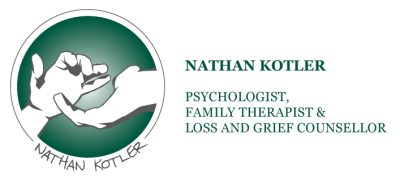Let me see my baby: How to talk about stillbirth and the death of a child
By Cate Grant, updated 26 Apr 2018
Carleon Russell was three months pregnant with her second baby when her nine-month-old daughter Verity died.
“I wanted to die, when I discovered my baby dead. I just tried to stop breathing and stop existing,” she said.
“She was a healthy, beautiful little girl, who strangled in her cot when she was nine months old.
“After Verity died, I discovered that I was part of this super secret club, where there are babies dying in Australia all the time, and nobody talks about it.
“For years and years I never really talked about it, I knew other people who’d lost babies and they never really talked about it.”
For Amy Banson, her work as a birth doula showed her how unprepared many health care professionals and families were when a baby died during birth or as an infant.
“In reality everyone is touched by this in some way, we all know someone who is touched by this — a sister, a friend, a neighbour, or we are amongst a community of people who are in some capacity working with these families.”
It prompted Ms Banson to hold a community forum — Let Me See My Baby — to open up discussions about stillbirth and infant loss.
“We’re talking about how to support a woman and her family when she finds out her baby has no heartbeat when she’s pregnant, or she finds out that her baby has a terminal illness, or where something happens and the baby dies,” she said.
One panel member, Vickie Hingston-Jones, lost her twins 42 years ago, and she said the approach of nurses then was brutal.
“They said: ‘chin up, there’s plenty more where they came from’ and ‘don’t hold your baby, it’ll only make it worse’, and ‘don’t name your baby’ and that was normal for that time,” she said.
Launceston mother Emily Marshall said when her baby Tyson was stillborn at 24 weeks, she felt some peoples’ comments were particularly unhelpful.
“When people said: ‘everything happens for a reason’ or ‘things will get better soon’, when they didn’t even have a damn clue how I felt, those few things personally really got me wild,” she said.
Ms Marshall said it was important for her and her partner Khegan to acknowledge their son as the years passed.
“We go visit him often at the cemetery and when we buy him birthday, Christmas or easter gifts, I always ask Khegan what he would like to get for Tyson. I try to involve him as much as I can, he finds it hard to deal with,” she said.
“It has changed him quiet a lot, but I know deep down inside he thinks about him all the time, he just doesn’t show it and I’m sure many, many men do that.”
Clinical psychologist Sarah Purvey said it was important for parents to feel they can talk about the loss of their baby.
“Saying something like: ‘I don’t know if you want to talk about this, but I’m just letting you know that I’m here for you, if you do’, those sort of statements,” she said.
“By bringing it up and acknowledging it you are not going to make the parent feel worse, because parents need to know that the support is out there.
“Even if they don’t want to talk about it, at the time, at least they know someone is thinking about them.”
For Carleon Russell attending Let Me See My Baby was a turning point in her grief.
“To be in a safe environment, and it’s ok to be raw and it’s ok to be real, and it was safe to talk about these deeply traumatic, hideous experiences that some women have had, it was healing, it was nourishing,” she said.
“It was like this great weight came off me that I didn’t even realise I had been carrying.”
Leave a reply
